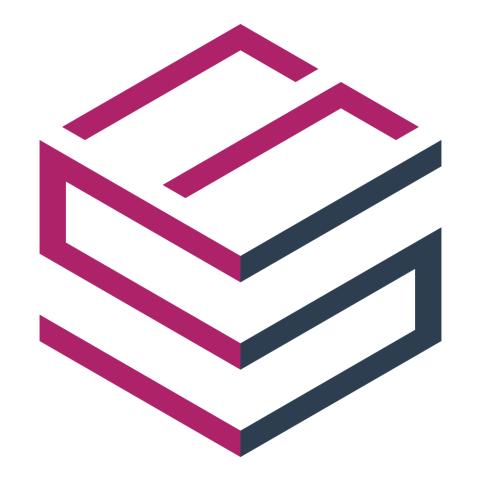Living with Attention Deficit
Hyperactivity Disorder (ADHD) presents unique challenges that can impact
various aspects of life. While medication can be a helpful component of ADHD
management, it is often not sufficient to address the full spectrum of difficulties
that individuals face. ADHD coaching
offers a distinct, individualized approach that can help people with ADHD
thrive by providing the structure, support, and accountability they need to
reach their full potential. This post aims to provide a comprehensive
overview of ADHD coaching, explaining what it is, how it works, its benefits,
who can benefit from it, and how to find a suitable coach. It is important to
note that coaching is a tool that can be
used in conjunction with other ADHD treatments.
What is ADHD Coaching?
An ADHD coach is a specialized "life
coach" who is trained to assist adults, teens, and children with ADHD in
better managing their lives. Unlike traditional therapy, which delves into past
psychological issues, ADHD coaching is a
proactive approach focused on achieving specific goals. Coaches do not act
as therapists, medical experts, or mentors, but rather they work to help
clients achieve specific objectives.
An
ADHD coach can help with:
●
Planning and management skills
●
Time management
●
Organization
●
Motivation
●
Self-esteem and relationships
●
Self-advocacy
●
Impulse control
●
Problem solving
●
Daily habits and routines, such as
finances, home maintenance, nutrition, exercise, and sleep
●
Specific issues like avoiding
distractions, completing tasks, managing rejection sensitivity and sensory
overload, improving time management, balancing work and home life, conquering
boredom, improving self-esteem, managing negative thoughts, dealing with big
emotions, and improving communication
●
Developing individual strategies
for dealing with ADHD-related behaviors that are problematic.
ADHD
coaching is tailored to meet the specific needs of each individual with ADHD.
How Does ADHD Coaching Work?
ADHD coaching involves a personalized
approach where coaches work with clients to develop strategies that address the
client's specific challenges. Coaches assist clients in creating action plans
that are tailored to their unique ADHD brain. This process is a partnership, where the client is in charge,
and the coach provides support, asks questions, and ensures accountability.
Unlike therapy, which focuses on emotions, coaching is focused on adopting
positive behaviors. Coaches work to help
clients understand their unique brain wiring and identify their strengths.
Common
tools and techniques in ADHD coaching include:
●
Goal setting
●
Prioritization
●
Planning and scheduling
●
Stress management
●
Building confidence and
self-esteem
●
Enhancing relationship and
communication skills
●
Improving memory
●
Assigning homework activities
Through
coaching, individuals can learn to:
●
Maintain focus
●
Identify specific steps needed to
reach a goal
●
Find the motivation necessary to
work towards a goal
Benefits of ADHD Coaching
There are several potential benefits of ADHD
Coaching:
●
Improved Understanding: Coaching helps
individuals understand how ADHD impacts their daily lives, leading to a greater
sense of control over their symptoms.
●
Goal Setting: Coaches work with clients to set
and prioritize goals.
●
Self-Advocacy: Coaching helps clients advocate
for their needs at work or school.
●
Relationship Skills: Coaching can improve
communication skills and help families better understand ADHD.
●
Addressing the "Silent Struggle":
Coaching can address the unique challenges faced by individuals who may go
undiagnosed, such as women.
●
Empowerment: Coaching empowers clients to
become their own best advocates.
●
Many people have reported that coaching has helped them with issues that
traditional interventions did not.
Who Can Benefit from ADHD
Coaching?
ADHD coaching is suitable for a variety
of individuals:
●
Those Ready to Change: It is most effective
for people who are aware they need help and are ready to make changes.
●
Students: Coaching can help students focus on
time management and staying on task with assignments.
●
Adults: Coaching can assist adults with work,
home, and relationships.
●
Parents: Coaches can work with parents to
better understand their child's ADHD and create strategies for support.
●
Those Seeking Additional Support: Coaching can
provide an extra form of support for those struggling with daily life.
●
Those Who Don't Respond to Medication:
Coaching can benefit those who do not want to take medications or do not
respond well to them.
●
Coaching is not a replacement for treatment but can be used in
conjunction with it.
Finding the Right ADHD Coach
Finding the right ADHD coach is essential
for a successful coaching experience. It is important to consider several
factors when searching for a coach.
Resources
to find a coach include:
●
ADHD Coaches Organization (ACO)
●
ADD Coach Academy
●
JST Coaching & Training
●
International ADHD Coach Training
Center
●
International Coach Federation
(ICF)
●
Local CHADD chapters
●
Doctors or psychologists
●
Online directories
The chemistry
between the client and coach is critical for success. Coaches should have
experience working with clients with ADHD and possess a thorough understanding
of the condition.
When
selecting a coach, consider:
●
Their training in ADHD coaching
●
Their experience with your
specific issues
●
Relevant experience, particularly
if you are a parent, child, or business executive
Questions
to ask a potential coach:
●
Do you work with clients who have
problems similar to mine?
●
Do you specialize in working with
a parent, child, single adult, or business executive?
●
Can you refer me to another coach?
●
Do you coach in person, over the
phone, or via the web?
●
How long are the sessions?
●
Do you have personal experience
with ADHD?
●
What is your educational
background?
●
Are you certified or credentialed
in ADHD coaching?
●
How long have you coached?
●
How many clients do you see?
●
Are you a part of any professional
ADHD coaching organizations?
●
Are you a licensed mental health
provider?
●
What are the fees involved with
your services?
Coaches should not claim to cure or treat ADHD, step outside their scope of
practice, make medical recommendations, judge clients, or speak negatively
about them. A coach should be able to clearly
explain their approach to coaching.
The Coaching Process
The coaching process typically begins
with an initial consultation, often
free, to assess the fit. The first
session is usually longer to allow the coach to get to know the client.
Together, the client and coach will identify
goals and steps to achieve them. Coaches will assign homework, and
subsequent sessions will often begin with a review of the assignment. Sessions can range from 30 to 60 minutes
and may occur weekly, bi-weekly, or monthly, depending on the client’s needs
and progress. Coaching can be conducted in
person, via telephone, or online. Some coaches offer additional support via
email or brief check-in calls. Coaches will monitor progress and adjust strategies as necessary. Doing homework is critical to making
progress.
Cost and Insurance
The cost of ADHD coaching varies, but the
average falls between $300 and $600 per
month. Many coaches accept credit cards, but most do not offer a sliding
scale for fees. Most insurance plans do
not cover coaching.
Alternative
options include:
●
Flexible spending accounts (FSAs)
●
Tax deductions if a doctor writes
a prescription for coaching
●
Employer payment
●
Deduction as a business expense
for self-employed individuals
It is important to consider the long-term financial benefits of coaching as
an investment in improved life skills.
Making Progress and Winding
Down
Clients should see small improvements after the first session and more progress in the
first month. It is normal for interest to wane around the fifth week. If
strategies are not working, it is important to be open to changing course and
finding a new approach. Coaches should
normalize feelings and focus on what the client has accomplished. If a
client is not making progress or does not feel that a coach has their best
interest at heart, it may be time to find a new coach. As clients internalize
strategies, sessions will often reduce
in frequency to bi-weekly or monthly. Most coaches are available for
occasional "tune-up" sessions as needed. The ultimate goal of coaching is for clients to become their own coaches
and manage their own lives. A good
coach empowers clients to achieve their goals and does not attempt to
"fix" them.
Credentials and
Certifications
It is important to note that ADHD coaching is not a regulated profession,
meaning anyone can call themselves an ADHD coach.
Certifications
to look for include:
●
Certified ADHD Coach (C.A.C.)
●
Senior Certified ADHD Coach
(S.C.A.C.)
●
Associate Certified Coach (A.C.C.)
from the ICF
●
Professional Certified Coach
(P.C.C.) from the ICF
●
Master Certified Coach (M.C.C.)
from the ICF
Experience
and innate ability are often more important than certifications. Clients should ask about a
coach's training in ADHD, regardless of other credentials. Many coaches
have a background in mental health, social work, or direct experience with
ADHD, but this is not a requirement.
Conclusion
ADHD
coaching is a valuable tool that can help with symptom management, improve
daily life, and provide long-term strategies for success. Coaching is a partnership that
empowers individuals to develop self-coaching skills. If you are looking
for an approach that goes beyond medication and is tailored to your needs, consider ADHD coaching as an investment in
your well-being.










